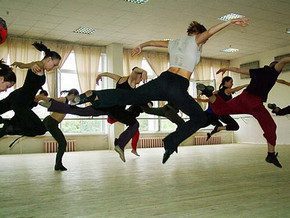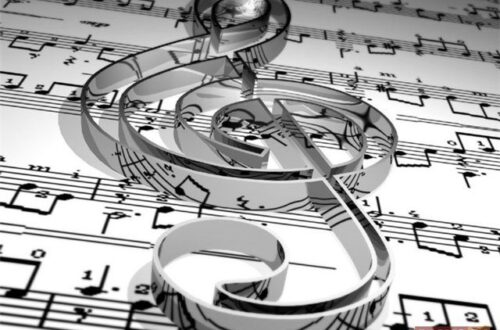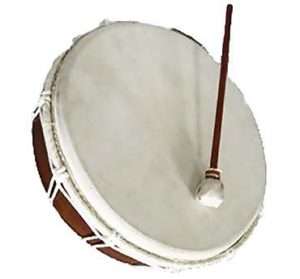Optimal concert state, or how to overcome anxiety before performing on stage?
Contents
Performers, especially beginners, often do not know how to overcome their anxiety before a performance. All artists differ from each other in character, temperament, level of motivation and strong-willed qualities.
These personality traits, of course, only partially influence the ability to adapt to public speaking. After all, a successful appearance on stage for everyone still depends, first of all, on the readiness and desire to play, and also on the strength of stage skills (in other words, experience).
Every artist needs to learn how to prepare himself for a performance, learn how to easily enter into optimal concert condition – a state in which fear and anxiety do not spoil performances. They will help him with this long-term, permanent measures (for example, sports training), and specific local measures, which are resorted to immediately before going on stage (for example, a special regime of a concert day).
Physical activity for the general tone of the artist
In the process of professional development of a musician, it is important to maintain muscle tone in good shape. To do this, you need to play sports: sports such as running and swimming are suitable. But with gymnastics and weightlifting, a musician needs to be careful and engage in such sports only with an experienced trainer, so as not to accidentally get any injuries or muscle strains.
Good health and performance, in other words, tone, allows you to quickly recreate a special feeling of kinship with the keyboard, bow, fretboard or mouthpiece and avoid any manifestations of lethargy during the playing process.
How to overcome anxiety before a performance?
Mental and emotional preparation for an upcoming concert helps a musician overcome anxiety before performing on stage in public. There are special psychological exercises – they are neither popular nor effective; among musicians they are considered too formal, however, they can help some, since they were developed by professional psychological trainers. Try it!
Exercise 1. Autogenic training in a relaxed state
This is almost like self-hypnosis; while doing this exercise you can have a good rest. You need to sit in a comfortable chair and completely relax (you should not be wearing any clothes, you should not be holding anything in your hands, it is recommended to take off heavy jewelry). Next, you need to try to free yourself from any thoughts and from the sense of time. This is the most difficult thing, but if you succeeded, you are great! You will be rewarded with a buzz and wonderful relaxation for mind and body.
If you have managed to free yourself from the thought and sensation of time, then sit as long as you can – during this time you will rest and you cannot even imagine how much!
Further, psychologists recommend imagining the concert hall, the audience and the process of your performance in detail. This stage is painful! Whether to switch to it or not is up to you! It is better not to spoil the achieved state of peace.
Exercise 2. Role training
With this exercise, a musician, in order to overcome anxiety before a performance, can enter into the role of a known artist, confident in himself, who is at ease on stage. And in this role, mentally rehearse your act again (or directly go on stage). In some ways, this approach resembles a madhouse, but again: it helps someone! So try it!
Still, no matter what the suggestions are, they are artificial. And the artist should not deceive his viewer and listener. He must, first of all, fill your speech with meaning – dedication, preliminary congratulations, and explaining the concept of the work to the public can help with this. You can do without directly expressing all this: the main thing is that the meaning exists for the performer.
Often the thoughts of the work are correct set artistic tasks, attention to detail for some artists is simply leave no room for fear (there is no time to think about risks, no time to think about possible failures – there is time to think only about how to play better and how to more accurately convey your own and the composer’s ideas).
Stage masters advise…
The behavior of a musician in the last hours before a concert is important: it does not predetermine the success of the performance, but it does influence it. comfort! Everyone knows that, first of all, it is necessary to fully to have a good sleep. It’s important to plan diet in such a way as to have lunch in advance, because the feeling of fullness dulls the senses. On the other hand, a musician should not be exhausted, tired and hungry – the musician must be sober, active and receptive!
It is necessary to limit the time of the last training: the last technical work should be done not on the day of the concert, but “yesterday” or “the day before yesterday”. Why? Therefore, the result of a musician’s work appears only on the second or third day (the night must pass) after classes. Rehearsals on the day of the concert are possible, but not very labor-intensive. It is imperative to rehearse a performance in a new place (especially for pianists).
What to do immediately before going on stage?
Necessary get rid of any discomfort (warm up, go to the toilet, wipe off sweat, etc.). A must break free: relax (relax your body and face), lower your shoulders, then straighten your posture. Before this, it was necessary to check whether everything was in order with the concert costume and hairstyle (you never know – something came unfastened).
When you are announced, you need light up a smile and look! Now look around to see if there are any obstacles (steps, ceiling, etc.), and go out to your audience easily and simply! She’s already been waiting for you! Walk to the edge of the stage, once boldly look into the hall, smile at the audience just once, try to look at someone. Now sit (or stand) comfortably, imagine the key bars (to get the right tempo), get your hands ready and begin… good luck to you!
Stage fright also has a positive side, anxiety indicates that the musician has an important result of his playing. Already awareness of this fact helps many young talents to behave with dignity.




